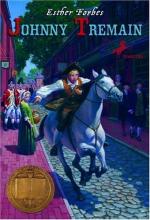|
This section contains 508 words (approx. 2 pages at 300 words per page) |

|
Most historical novels are nothing if they are not historical—and they are not historical. In particular, they have a way of finding in the past what the present assumes must have been there. In the ordinary historical novel a character visiting the Salem custom house about 1845 or thereabouts, and finding the surveyor of the port a youngish, shy man, "handsome with his mane of heavy hair and the dark eyes, half-melancholy and half amused," would be certain to recognize Nathaniel Hawthorne and likely to have a premonition that the surveyor was even then writing a novel on some such theme as, say, adultery in early Massachusetts.
Esther Forbes is not an ordinary historical novelist. In "The Running of the Tide," the surveyor makes his momentary appearance in the final chapter without any mention of his actual name or future renown. This is true history. For Hawthorne was...
|
This section contains 508 words (approx. 2 pages at 300 words per page) |

|


